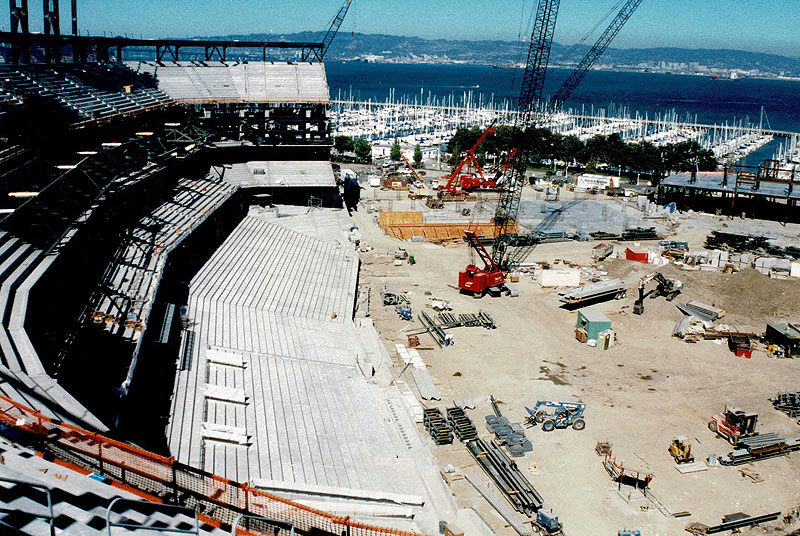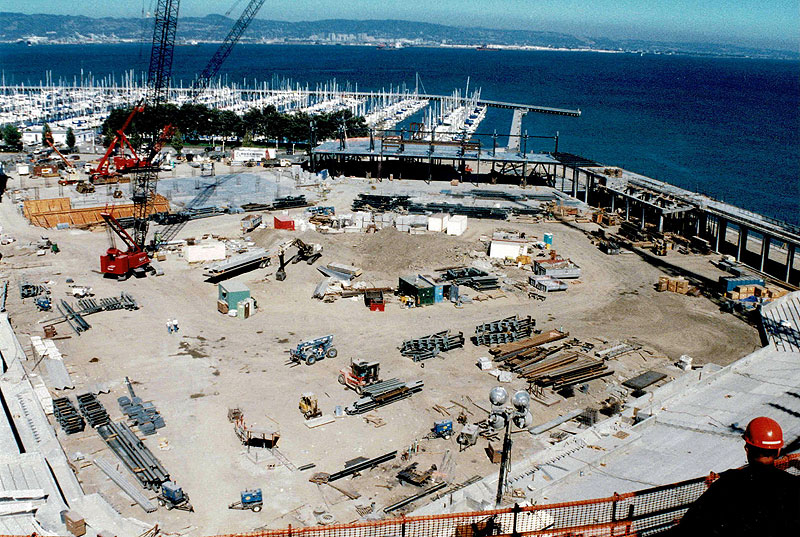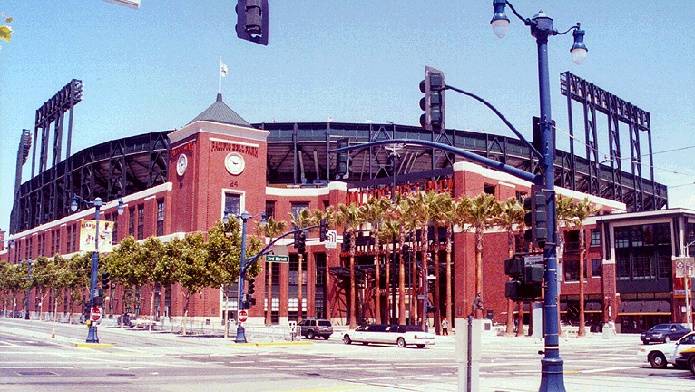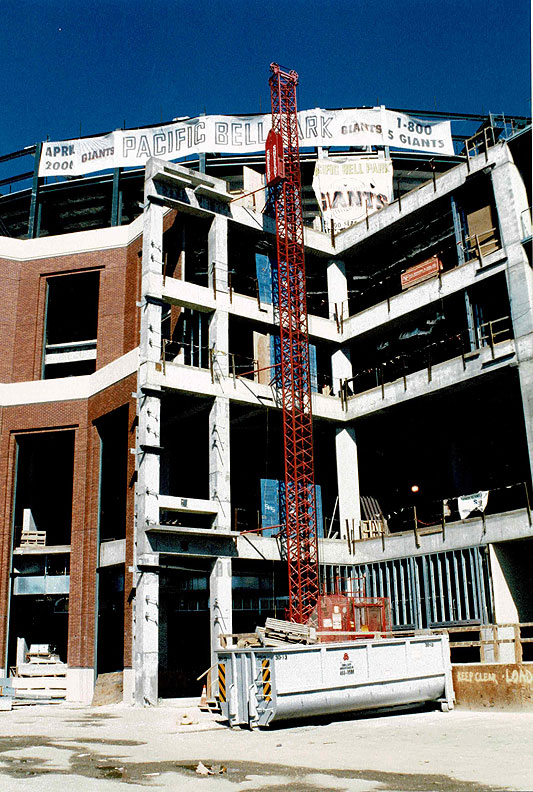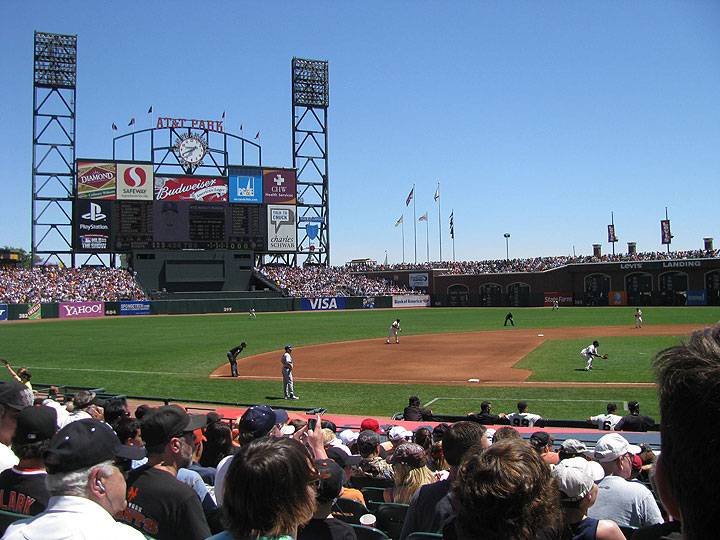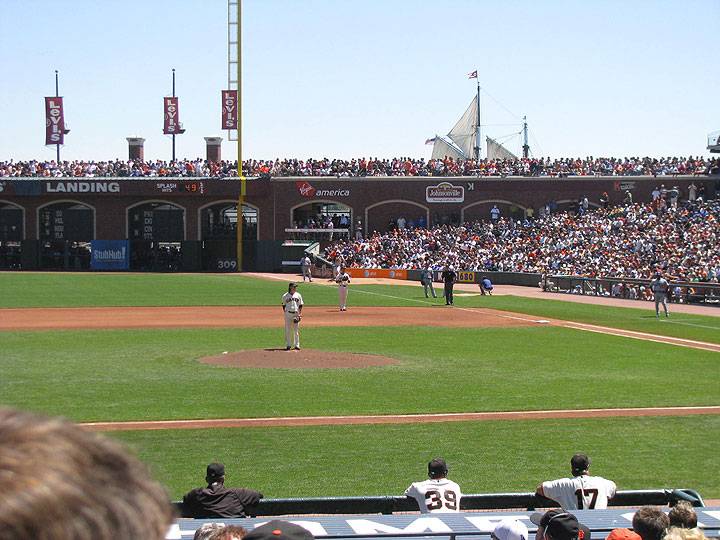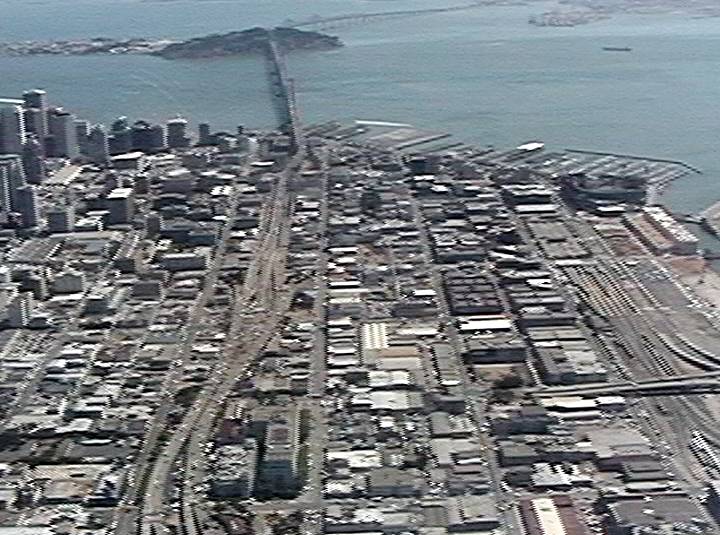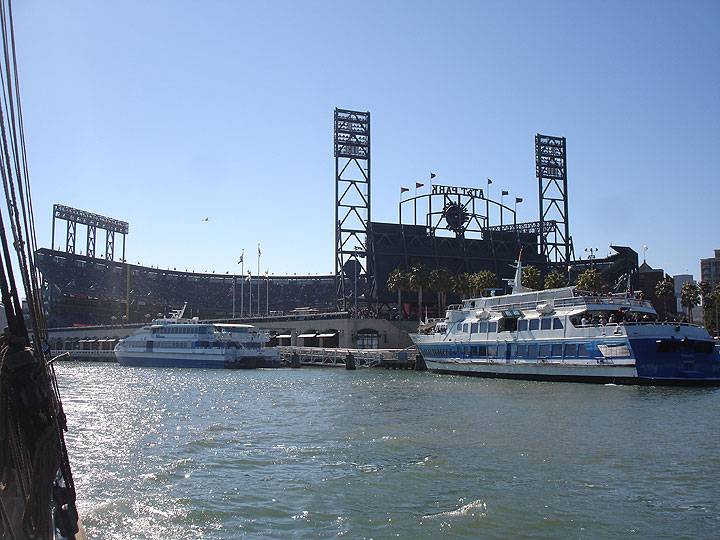Pac Bell Ballpark: Difference between revisions
added Stanford student's 3 paragraphs |
added photos, information, category |
||
| (One intermediate revision by the same user not shown) | |||
| Line 10: | Line 10: | ||
During the fall of 1996, an initiative was on the ballot introducing a new stadium to be located in the China Basin/South Beach part of the city. Coming with a price tag of $357 million the new stadium dwarfed the price of Candlestick ($15 million). Voters in SF, Santa Clara and San Jose all rejected measures to help finance the construction of a new stadium, likely recalling the controversy surrounding Candlestick Park. The new owner, Peter Magowan, bought the team with the hope of keeping the team in SF; eventually finding a way to finance construction privately – the first since the Dodgers Stadium opened in 1962. | During the fall of 1996, an initiative was on the ballot introducing a new stadium to be located in the China Basin/South Beach part of the city. Coming with a price tag of $357 million the new stadium dwarfed the price of Candlestick ($15 million). Voters in SF, Santa Clara and San Jose all rejected measures to help finance the construction of a new stadium, likely recalling the controversy surrounding Candlestick Park. The new owner, Peter Magowan, bought the team with the hope of keeping the team in SF; eventually finding a way to finance construction privately – the first since the Dodgers Stadium opened in 1962. | ||
[[Image:Pacbell-park-under-construction-north-side.jpg]] | |||
'''Pac Bell Park under construction summer 1999.''' | |||
''Photo: Chris Carlsson'' | |||
[[Image:Pac-bell-park-under-construction-outfield-and-field.jpg]] | |||
'''Summer 1999, bleachers and playing field under construction.''' | |||
''Photo: Chris Carlsson'' | |||
As part of the financing of the new stadium, the Giants did receive a $10 million tax abatement, and $80 million worth of infrastructures upgrades were installed by the city to serve the new stadium. This is included the 280N ramp that landed adjacent to the stadium, as well as extending MUNI train lines to the front door of the stadium. | As part of the financing of the new stadium, the Giants did receive a $10 million tax abatement, and $80 million worth of infrastructures upgrades were installed by the city to serve the new stadium. This is included the 280N ramp that landed adjacent to the stadium, as well as extending MUNI train lines to the front door of the stadium. | ||
Construction of the new stadium began on December 11, 1997, and opened for play on April 11, 2000. The stadium opened as Pac Bell Park in 2000, but was renamed SBC Park in 2004 and then to AT&T Park in 2006. | Construction of the new stadium began on December 11, 1997, and opened for play on April 11, 2000. The stadium opened as Pac Bell Park in 2000, but was renamed SBC Park in 2004 and then to AT&T Park in 2006, and to Oracle Park by the late 2010s. | ||
[[Image:soma1$pacbell-front-view.jpg]] | [[Image:soma1$pacbell-front-view.jpg]] | ||
'''Pacific Bell Park, which should have been called "Willie Mays Field," the new home of the Giants.''' | '''Pacific Bell Park, which should have been called "Willie Mays Field," the new home of the Giants.''' | ||
[[Image:Pac-bell-park-under-construction-willie-mays-plaza.jpg]] | |||
'''Summer 1999, under construction.''' | |||
''Photos: Chris Carlsson'' | |||
The hated L.A. Dodgers swept the Giants in the opening 3 games at Pacific Bell Park (April 12-14, 2000). Home runs to right field could now land in the [[McCovey Cove |water]]. | The hated L.A. Dodgers swept the Giants in the opening 3 games at Pacific Bell Park (April 12-14, 2000). Home runs to right field could now land in the [[McCovey Cove |water]]. | ||
| Line 36: | Line 54: | ||
'''In this 1999 aerial shot you can see the ballpark at upper right still being finished, with the new offramps from I-280 to King Street, but hardly any of the booming development that would follow.''' | '''In this 1999 aerial shot you can see the ballpark at upper right still being finished, with the new offramps from I-280 to King Street, but hardly any of the booming development that would follow.''' | ||
''Photo: Chris Carlsson'' | |||
[[Image:Ferries-at-ballpark4642.jpg]] | |||
'''Ferries have been serving the ballpark since its opening in 2000.''' | |||
''Photo: Chris Carlsson'' | ''Photo: Chris Carlsson'' | ||
| Line 43: | Line 67: | ||
[[category:SOMA]] [[category:2000s]] [[category:baseball]] [[category:Mission Bay]] [[category:1990s]] | [[category:SOMA]] [[category:2000s]] [[category:baseball]] [[category:Mission Bay]] [[category:1990s]] [[category:landmarks]] | ||
Latest revision as of 20:13, 10 August 2024
Unfinished History
Mat Callahan, former longshore worker and cabbie, talks about the history of the waterfront as he drives through Mission Bay along 3rd Street, crossing the 3rd Street Bridge and turning onto Berry Street to get to the Embarcadero, continuing on to beneath the Bay Bridge, in 1997! Before the ballpark had even begun demolition...
Video by Chris Carlsson
by Travis Duncan
During the fall of 1996, an initiative was on the ballot introducing a new stadium to be located in the China Basin/South Beach part of the city. Coming with a price tag of $357 million the new stadium dwarfed the price of Candlestick ($15 million). Voters in SF, Santa Clara and San Jose all rejected measures to help finance the construction of a new stadium, likely recalling the controversy surrounding Candlestick Park. The new owner, Peter Magowan, bought the team with the hope of keeping the team in SF; eventually finding a way to finance construction privately – the first since the Dodgers Stadium opened in 1962.
Pac Bell Park under construction summer 1999.
Photo: Chris Carlsson
Summer 1999, bleachers and playing field under construction.
Photo: Chris Carlsson
As part of the financing of the new stadium, the Giants did receive a $10 million tax abatement, and $80 million worth of infrastructures upgrades were installed by the city to serve the new stadium. This is included the 280N ramp that landed adjacent to the stadium, as well as extending MUNI train lines to the front door of the stadium.
Construction of the new stadium began on December 11, 1997, and opened for play on April 11, 2000. The stadium opened as Pac Bell Park in 2000, but was renamed SBC Park in 2004 and then to AT&T Park in 2006, and to Oracle Park by the late 2010s.
Pacific Bell Park, which should have been called "Willie Mays Field," the new home of the Giants.
Summer 1999, under construction.
Photos: Chris Carlsson
The hated L.A. Dodgers swept the Giants in the opening 3 games at Pacific Bell Park (April 12-14, 2000). Home runs to right field could now land in the water.
Giants and Dodgers maintain their rivalry, this being an August 12, 2009 game between them.
Cy Young repeat winner Tim Lincecum pitches against the Dodgers in this August 2009 game while a tall sailing ship passes behind the right field arcade in McCovey Cove, which used to be better known as Mission Creek.
photos and text by Chris Carlsson
In this 1999 aerial shot you can see the ballpark at upper right still being finished, with the new offramps from I-280 to King Street, but hardly any of the booming development that would follow.
Photo: Chris Carlsson
Ferries have been serving the ballpark since its opening in 2000.
Photo: Chris Carlsson

